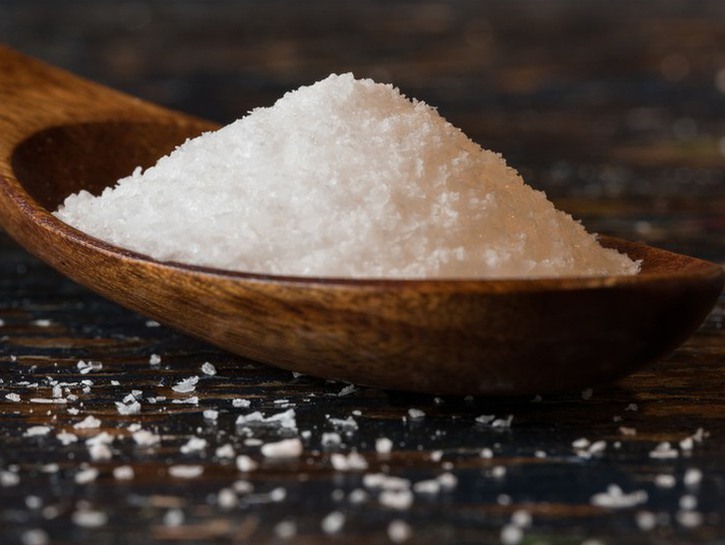Not all of us are five-star chefs, but one thing’s for sure: carnivores everywhere love a well-seasoned piece of meat. Putting together a good marinade isn’t easy, even less so when you see the ingredients for the first time. One of those ingredients is the curious kosher salt. What is it? Do you need it over other kinds of salt? Is it even different from iodized table salt? Where can you find it? Look no further, we have the answers to all your questions.
What Is Kosher Salt?

Kosher salt differs from your everyday table salt in that the crystals are much larger. As you know, if you were to pinch some table salt and sprinkle it onto meat or into a pot, you’d see dozens of little crystals spill from your fingertips. With kosher salt, on the other hand, you wouldn’t get half as many. It also takes longer to dissolve in the mouth due to the size of the crystals.
It earned its name thanks to its role in meat’s koshering process. What this means is that certain meats need to have the moisture pulled from them in order to fully heed religious dietary restrictions in Jewish culture (known as kashrut). Kosher salt’s large crystals are perfect for this process.
When To Use Kosher Salt
Kosher salt can be added to a variety of recipes, can be used before or after cooking, and pulls the moisture from meat. Feel free to use it to tenderize your steaks, flavor dishes when boiling vegetables or making pasta, or to salt the rim of your margarita. Of course, you can also use them in your marinades for various types of meat like beef and poultry.
The only time you should keep away from kosher salt is when you’re baking. The larger crystals don’t break down as fast and your cupcakes might be in for a salty surprise otherwise.

Kosher Versus Table Salt
Table salt contains iodine, which is an additive that causes it to taste the way it does. Table salt also tends to have anti-caking compounds, which is an additive included in granulated ingredients to prevent the formation of clumps.
Kosher salt, though, doesn’t have a similar strength in its taste because there isn’t any iodine. It’s also considered to be a cleaner salt given that there aren’t any additives.
- Table salt contains iodine and anti-caking compounds
- Table salt has finer crystals
Kosher Versus Sea Salt
Even if you didn’t know what kosher salt was before coming here, you’ve more than likely heard of sea salt. You may be aware that sea salt comes in coarse, larger crystals – just like kosher – but it can also come in an assortment of different colors. Unlike kosher salt, however, sea salt can also come in smaller crystals. Sea salt can also run on the more expensive side of things and will definitely set you back more than table salt would.
- Sea salt comes in a variety of colors
- The main difference is their crystal size
Kosher Versus Himalayan Pink Salt

Himalayan pink salt is easily one of the prettier salts on this list. While its color makes it easy to distinguish from others, pink salt and kosher salt are similar in that they have the same thick crystals. Pink salt is also one of the cleaner salts on this list and only contains traces of natural iodine rather than manufactured additives.
- Pink salt has a noticeable hue
- Pink salt is clean
Which Salt Is Best?
Chefs like using kosher salt over the others due to its versatility. The larger crystals also make it way easier for home cooks and professional chefs to sprinkle over food. It’s particularly useful when seasoning meat, not just steak.
It’s also chosen over others because kosher salt isn’t as strong. There’s nothing worse than adding too big a “pinch of salt” or not enough and eating a bland dish. Due to the effortlessness of using kosher salt, you’ll more than likely wind up with better tasting food. You’ll get a more pure, less intense taste.
Plenty of people turn to kosher salt as well because of iodine deficiencies. Himalayan pink salt may not contain tons of manufactured iodine, but you’re still running the risk with the natural amount it possesses. Kosher is the way to go is allergies or dietary restrictions are on the line.

